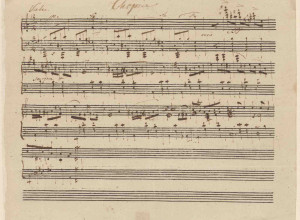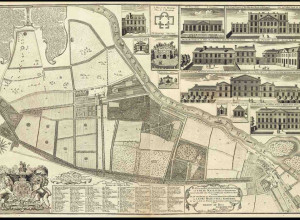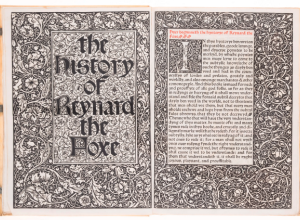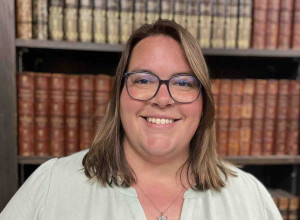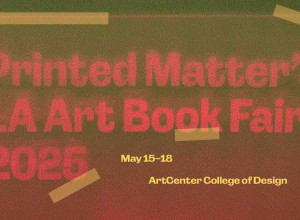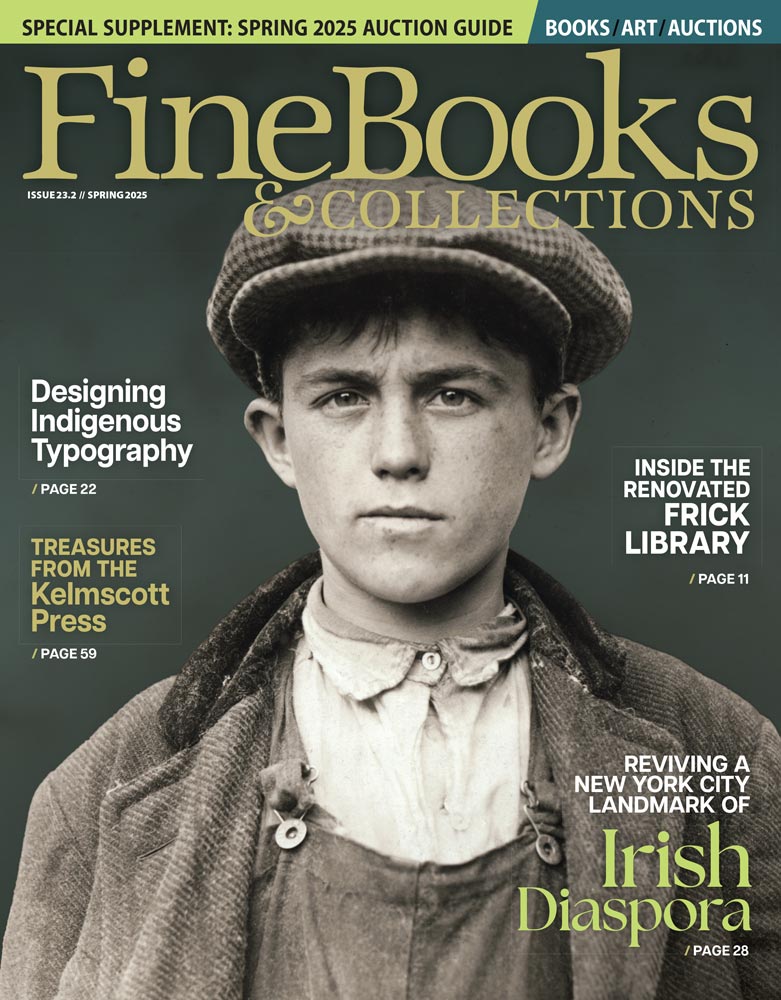Bright Young Librarians: Nick Twemlow
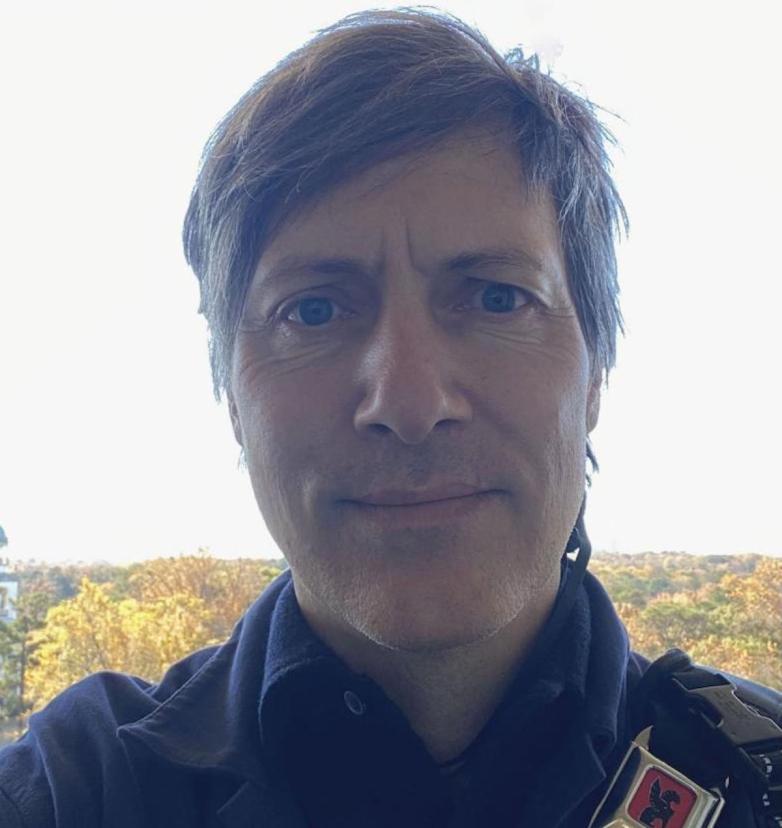
Our Bright Young Librarians series continues today with Nick Twemlow, literary and poetry collections librarian at the Rose Library at Emory University in Atlanta.
What is your role at your institution?
I am the Literary and Poetry Collections Visiting Librarian at the Stuart A. Rose Manuscript, Archives, and Rare Book Library at Emory University. I began in fall of 2019 under a different title, and since then my role has spun out widely. I am responsible for literary and poetry collection development. Which means a lot of things. All of us at the Rose, and no doubt at every library on the planet (!), have many plates spinning at all times. We do what our job description denotes, plus it seems an order of magnitude more.
I acquire materials for our literary and poetry collections, with emphasis on 20th and 21st century English-language poetry, as we are the home of the Raymond Danowski Poetry Library, a massive, amazing collection that came to the Rose in 2004. Its scope is staggering, something I encounter every time I go into work and walk past the stacks where all the books and little magazines and broadsides and ephemera reside. I also continue to plan events and I co-produce with my colleagues Lolita Rowe, Randy Gue, and Jake Chisenhall, three podcast series that comprise the Rose Library Presents podcast suite, which you can listen to here.
How did you get started in special collections?
Completely sideways. I’ve worked a lot of different gigs, most recently, before this, I was a professor of creative writing and film studies at a small liberal arts college in the Midwest. My wife is a poet and professor who moved from her previous teaching position to Emory, and via many generous people here working on my behalf, I ended up at the Rose, initially to work on event planning, some collection development, and other duties.
Where did you earn your MLS/advanced degree?
I hold two MFA degrees, both from the University of Iowa. The first I picked up straight out of undergraduate studies, at the Writers’ Workshop, studying poetry. We left Iowa City for various places, and, years later, when my wife accepted a teaching position back at Univ. of Iowa, I left the professional job world and undertook my second MFA, this time in film & video production.
After completing this degree, I took a position at the Iowa City Public Library (the best public library in the world, IMHO) as their publicist. I ended up getting a tenure-track position teaching creative writing and film production at a nearby small liberal arts college, so I left my library job. But I’ll never forget my time there, both as a patron and as employee. It’s truly a beacon of intellectual freedom, inquiry, and so much more. I place it alongside the Topeka Public Library, which is my nationally recognized hometown library—a place I spent half my childhood in thanks to my amazing Mum, a prodigious reader—as two of the most welcoming public library spaces we have. And certainly the two libraries I have spent the most time in, though the Rose is catching up!
Favorite rare book / ephemera that you've handled?
I handle things every day that leave me just shaking my head. Gwendolyn Brooks’ childhood dictionary. Her reading copy of The World of Gwendolyn Brooks, which includes a handwritten poem and other notes. I am a longtime fan of Samuel Beckett, and took the opportunity at a visit from Atlanta’s Irish Consulate to go and find all of our copies of Murphy, his first novel. We have many excellent editions, including Ted Hughes’ copy. Which reminds me that we have Sylvia Plath’s British driving license, as well as her death certificate. And Anne Sexton’s marked up copy of Ariel. We also have Lucille Clifton’s papers, which are a marvel, and I recently spent time in preparation for a future podcast looking through her spirit writings, which are a revelation. I recommend a pilgrimage to the Rose to seek them out.
What do you personally collect?
I practiced the martial arts for many years, starting when I was seven, and my brother still runs our family dojo, so I have picked up magazines and books in that broad area over the years. My brother’s collection is special, numbering over 1,500 books and pamphlets, which he collects by opportunity and whatever is of interest to him at any given moment (e.g., he’s created an entire knife-defense system based on his research of hundreds of videos, articles, and books on the subject, so he has a significant knife subject area). I hope to finish a book someday about the martial arts in the United States, and I tell myself every time I purchase something that it’s for research.
I also love novelizations of films and TV shows. Not adaptations of literary properties, but the books commissioned by production companies to expand a film’s universe and sell product. This is an entire industry with some really excellent writers of the genre. I have maybe 150 titles, including multiples, and am thrilled anytime I enter a used bookstore at the prospect of finding just one among the stacks of genre paperbacks. It’s like panning for gold. My family also collects spinning tops and miniature poetry books.
What do you like to do outside of work?
Drive my son to fencing practice and tournaments. Do I “like” this? Not in the usual sense, but I do love my son’s fencing interest, so I put in the time driving upstream during Atlanta rush hour several times a week. This is how I spend most of my time outside of work. Roughly a one-hour drive to his fencing studio during rush hour, about 35-minute drive home. And then we fly/drive to regional and national tournaments. I am also trying to finish a novel, which feels like something I’ve been saying for a while! I have plans to try and do so over this coming winter break.
What excites you about special collections librarianship?
What excites me about special collections librarianship is my colleagues and their excellence not only regarding their specific day to day work, but all the other things (conferences, publishing papers, presentations) they do to advance their fields. Every day I learn of so many things they are working on beyond the work they do 9-5. They are working boss level all the time. I am also excited to see how the Rose has committed to community outreach, to bringing our collections to communities beyond campus. Our community outreach archivist, Lolita Rowe, is pioneering ways to do this, and just today she and I hosted 55 high school students on a campus visit that included special collections instruction, as well as tours through some of our exhibitions.
Thoughts on the future of special collections librarianship?
Continue to learn how to listen. Always. Collection strategies shouldn’t be a performance of righting past wrongs, but instead a strong indication of what is of informed importance to the institution that is doing the collecting. This seems like the only way to indicate to those individuals and communities whose materials are being collected that they are valued for their life and work, and not just to be representative of an underrepresented community. Look in uncomfortable places, and don’t solely rely on all those catalogues you get in the mail (but don’t disregard them, either). It seems to make sense to ask ourselves, if we have a budget and we spend on special collections materials, Can we do something different today than we did yesterday and that we might undertake tomorrow?
Any unusual or interesting collection at your library you'd like to draw our attention to?
There are many, but one that comes to mind right away isn’t so much unusual but exemplifies the treasures to be found during a typical day at work. We have the poet and dramatist, Mari Evans’ papers, which are incredible and vast. She was a pioneer in many ways, but one day as I was looking through a box of her materials to prepare for a show and tell, I found a proposal she wrote for an episode of the television Western, Gunsmoke, which I am pretty sure never came to fruition. I haven’t checked to see if the proposal was submitted to anyone, or if it was agented, but I look forward to some downtime to pull this and read it through.
Any upcoming exhibitions at your library?
Our amazing exhibitions team recently installed Apollo 15: Digital Exploration on the 50th Anniversary of the Mission, in partnership with the Emory Center for Digital Scholarship (who created this incredible accompanying online learning hub: https://apollo15hub.org/). It features materials from the David R. Scott and Anne Lurton Scott papers, which the Rose was grateful to receive from Tracy L. Scott, the couple’s daughter and a senior lecturer in Emory’s sociology department. I’ve handled some of the materials, and just today, in preparation for today’s high school visit, I chose a photograph of the moon’s surface that I believe was taken by David Scott’s Apollo mission crew. It was in a plastic bag branded with the word “Apollo” and looked both pedestrian and otherworldly at once.
My colleague Randy Gue and the exhibitions team is about to open Jack Stewart: The Birth of Subway Graffiti, which I’ve seen some of, and includes a partial NYC subway car! It’s so cool. Stewart was a photographer from Atlanta who became an important early documentarian of the NYC graffiti movement. It’s going to be a big show, visually rich and the kind of exhibition that draws students right into our collections.






